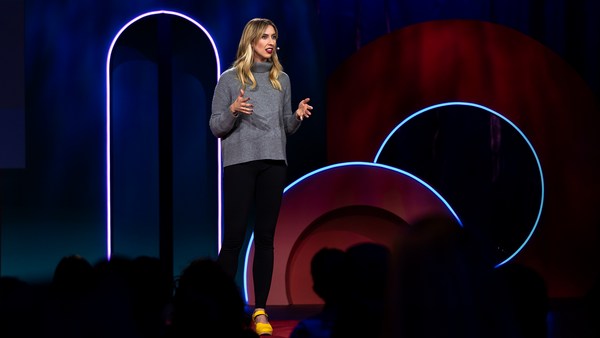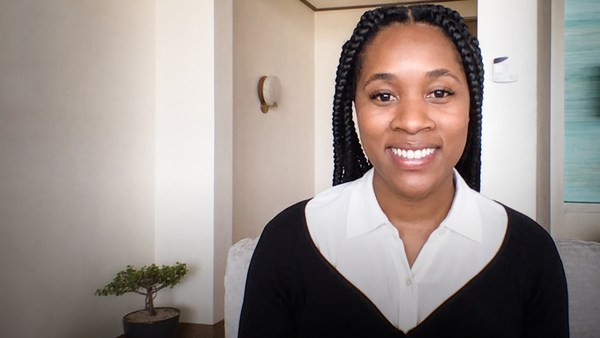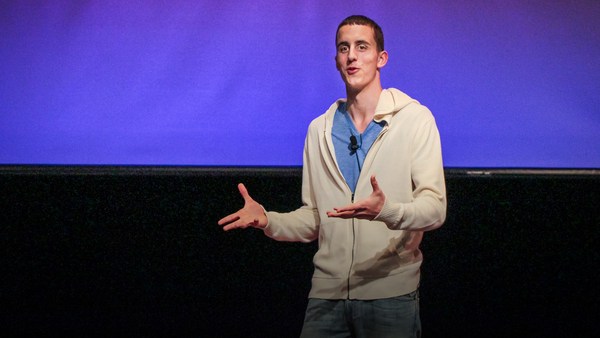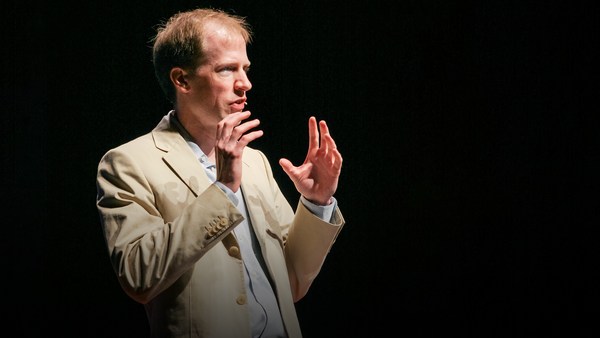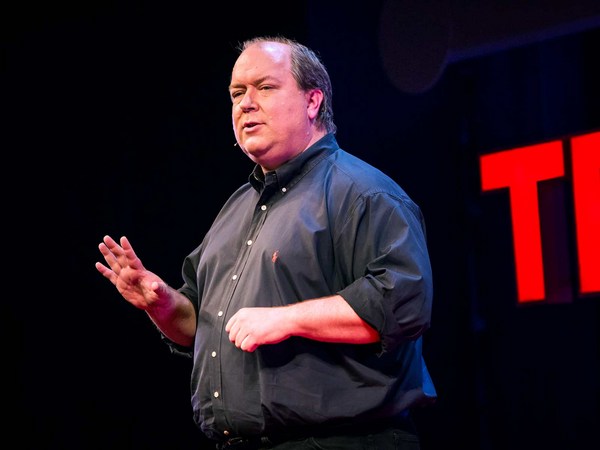Cloe Sasha Brooks: Hello, TED Community. You are watching a TED interview series called How to Deal with Difficult Feelings. I’m your host, Cloe Shasha Brooks, and a curator at TED. In this four-episode series, we've been talking with psychologists, authors and other experts who have shared insights and research about difficult feelings and how we can handle them. So now I will be speaking with David Kessler, an author who has written six books on grief and loss. Two of those books were co-authored with Elisabeth Kübler-Ross, a Swiss American psychiatrist who was a pioneer in near-death studies. And his most recent book, published last year, is called "Finding Meaning: The Sixth Stage of Grief." So let's bring David on screen. Hey, David, thank you for joining us. Let's dive right in. So many people are struggling with grief right now and the five stages of grief are kind of typically known to be denial, anger, bargaining, depression and acceptance. But can you tell us about the sixth stage of grief?
David Kessler: Absolutely. And I always like to point out I was honored to work with Kübler-Ross on her stages. They're not linear, they're not a map for grief, there's no one right way to do grief. And I think as people experience them, and also, as you know, and some people may know, I'm not only a grief specialist, but I'm a bereaved parent. I had a younger son, David, die a few years ago. Once I and so many people experience acceptance, we want more. Acceptance isn't enough for our generation. I think we want meaning. And I believe meaning is the sixth stage. And when we talk about meaning, I always like to point out there's no meaning in a horrible death or in a pandemic or in a wedding being canceled or a job being lost. The meaning isn't in the horrible event. The meaning is in us. It's what we find afterwards.
CSB: I mean, I just think that's such a helpful perspective for people to hold on to. And I also really appreciate, you know, you've written about these seven different factors that guide the concept of meaning when it comes to grief. Can you tell us about those seven factors?
DK: They are, first, meaning is relative and personal. Two, meaning takes time. You may not find it until months or even years after loss because you can't rush the meaning. You can't say someone died or a dream died or there's a pandemic, "What's the meaning?" right away, it often takes time. And three, meaning doesn't require understanding. You know, we may not understand why a relationship ends, why a divorce happens, why a pet died, why a pandemic happens. But we can still find meaning. And four, even when you do find meaning, you won't feel it was worth the cost. We'd always rather have the person we loved. And the fifth one -- and the fifth is a big one -- your loss is not a test, a lesson, something to handle, a gift or a blessing. Loss is simply what happens in life. And the meaning is in us afterwards. And six, only you can find your meaning. And seven, meaningful connections can replace those painful memories in time. The post-traumatic stress that's going on in the pandemic, I always remind people, one, we're not post, and two, we can also not just go through this, but grow through this. And there's the possibility of post-traumatic growth also that I think is so important during these tough times.
CSB: Yeah, yeah, yeah. Let's bring up a question from our audience. OK, so someone asked, "Having lost a daughter, how do I explain my grieving process to those who don't understand but want to?"
DK: You know, the reality is, people often, as hard as they try, may not understand our grief. You know, I don't know what it's like for you to lose your job, you don't know what it's like for me to have a child die. And I think one of the important things is for us not to compare griefs and to know the world is big enough for all our losses. So I think sometimes we have to let go of the expectation that they get it. And we have to go, "I know you can't get it. So let me tell you what this grief feels like to me." And share our grief.
CSB: Yeah. And you, kind of, have talked a lot about that, how there's big losses and little losses, but they're all valid, right? And they all get to coexist.
DK: I remember that I was walking back in April, in front of my house with a friend, six feet apart with our masks on. And a young woman walked up to me and said, "Oh, my gosh," you know, "I heard you do something in grief. My wedding's just been postponed." And she burst into tears. And I talked to her, we -- You know, she shared her experience and everything, and I consoled her. And after she walked away, my friend said, "Oh, my gosh, I can't believe she was going on and on about her wedding, when your child has died. She's going to get to have another wedding." And I said, "No, no, no, we don't compare in grief. We don't have a broken head, we have a broken heart." And everyone gets to have their own unique grief. And, you know, she's been dreaming about her wedding since she was five. It doesn't take away from my grief. All these losses live in the world together.
CSB: Let's bring another question from the audience. Someone is asking, "Can you tell us more about post-traumatic growth? How can I start to grow from a loss?"
DK: It’s such a great question, because we always hear about post-traumatic stress, But post-traumatic growth actually occurs more. And that is the finding meaning. Here's one of the myths: We think we make our grief get smaller, that that's the goal. The goal isn't to make our grief smaller. The goal is for us to become bigger, to grow around this grief. It's not "what are we going to do after this pandemic," but "who are we going to be?" It's not, "what are we going to do after this loss?" But "Who are we going to be?" How can we honor the person who died? How can we make a life and a world that's more meaningful, where maybe the bad thing that happened to you doesn't happen to other people in the future. Or you shape someone's legacy. Or we keep talking about them. As long as we talk about our loved ones who are no longer physically with us, they don't really die fully. So just allowing ourselves to continue in life is a bit of post-traumatic growth and not shutting down. And we need support. You know, it's interesting, if something's going on with our car, we get support. If something's going on with our apartment, we get support. Sometimes we think we just have to fight our way through grief and it's OK to ask for support and for help.
CSB: It's so important to remember that. When it's not tangible we forget how to ask for help. Along those lines, do you believe there's a time line for grief?
DK: Absolutely not. You know, when people ask me, "How long is my wife, my husband, my best friend going to grieve," I always say, "How long is the person going to be dead? Because if they're going to be dead for a long time, you're going to grieve for a long time." It doesn't mean you will always grieve with pain. Hopefully in time you can grieve with more love than pain. But there is no time line, and I always say we don't get over loss. We don't recover from loss. Our loved one was not a cold or a flu. We learn to live with it.
CSB: And for those who are maybe ready to start on the path of meaning as they move through their grief, how does one start that process?
DK: It's actually a decision. Are you willing to find meaning in time? Are you willing to let yourself just live a little more? Are you willing to try to think of a way that might honor what's happened in our world or what's happened in the loss in your life? It's a small decision. Am I willing to grow? Am I willing to live past this in a way that honors what I've lost?
CSB: Let's bring up another question from the audience. "How can we help our children when they experience grief?"
DK: Such a good question. You know, our children are often the forgotten grievers, And it's so important -- Here's one of the things: Mourning is what we do on the outside. Grief is what's inside of us. I can't make you grieve. I can't make my kids grieve. All we can do is model healthy grief. And how do we model healthy grief for our children? We tell them part of our work is to grieve fully. It's OK to be sad. It's OK to miss that person. And to live fully. Life also has to go on. I've still got to go to work, you still got to go to school. So it's the grieving and the living is what we model for them.
CSB: And it's so hard to with kids because it seems like, in some ways, they may not even know what they're feeling, right? So, like, how much of grief with children involves helping them understand definitions or even identifying feelings and all that?
DK: Yeah, and to just name it and open the conversation and just to let them know, you know, you can always talk about it with me. You know, kids actually understand more than we give them credit for.
CSB: That is true.
DK: And euphemisms don't work. Don't tell them Grandpa's gone to sleep or Grandpa's on a long trip. You want to be honest.
CSB: So, OK, here we are in a new time. We're starting to come out of this pandemic, at least in some countries in the world. How do you think our collective grief might shift in the next few months to years from here?
DK: Well, the one thing I hope we don't do is I hope we don't lose this ability to have these conversations, because that's been one of the pieces of meaning that's been important, is for the first time we're naming these feelings we're having. We're understanding grief, we're talking more about grief. And I hope we don't lose that after this. I hope we understand grief is such a natural part of life, that everyone you've ever admired, every amazing person in the world, has gone through tough grief. And there's nothing wrong with you when it happens to you. It is part of our lives.
CSB: Yeah. We're coming close to the end, so just as a final question for you, you know, if someone is really struggling through the depths of their grief right now, what's just the most important thing for them to remember?
DK: Reach out and get support, talk to someone, maybe someone who's been in grief themselves that can share that with you. It can be the family member, the coworker and get support from an organization, grief.com, as well as so many other sites, have lots of free resources that people can find. And I also want to remind people, we get so afraid of our feelings, like if I start crying, I'll never stop. I remind people no feeling is final, no feeling is forever. You do stop crying eventually, but release those feelings in a healthy way.
CSB: Yeah, that's really helpful. I think that's one of the things that growing up has shown me the most, is you know, any emotion is not permanent. And so that's a source of relief, right?
DK: And we get so stuck in thinking "This is it forever." But we don't know what tomorrow is going to look like. I always say take the word -- always -- I say take the word "always" and "never" out of our vocabulary. When we go, "I'm always going to be sad," or "I'm never going to be happy again." No, you don't know what tomorrow is like, but today you're feeling sad. Just name your feelings for today.
CSB: Yeah. Thank you, David, this has been really, really meaningful, and we've learned so much from you. So thanks for joining us.
DK: Thank you.
CSB: Have a great day.
